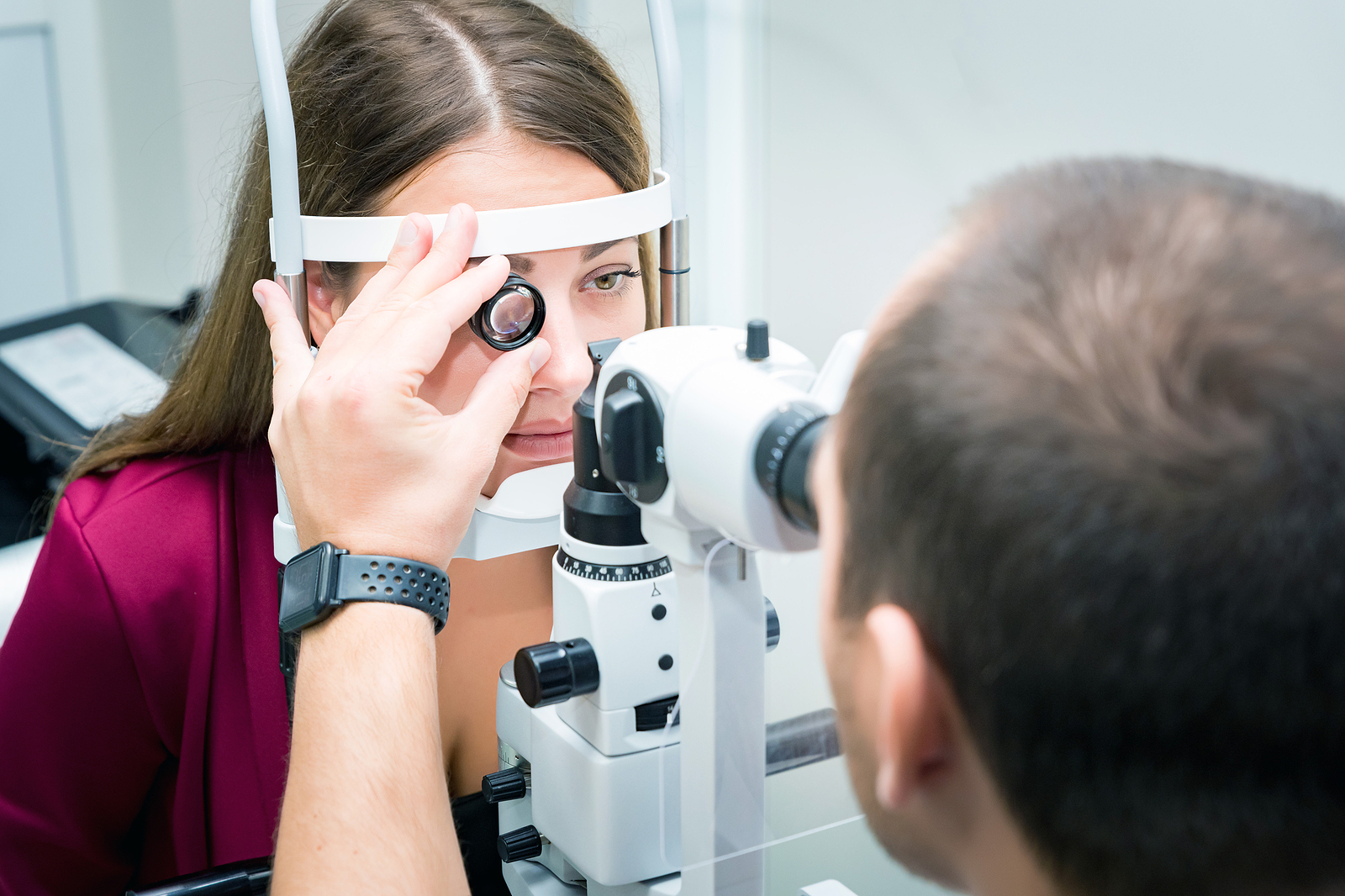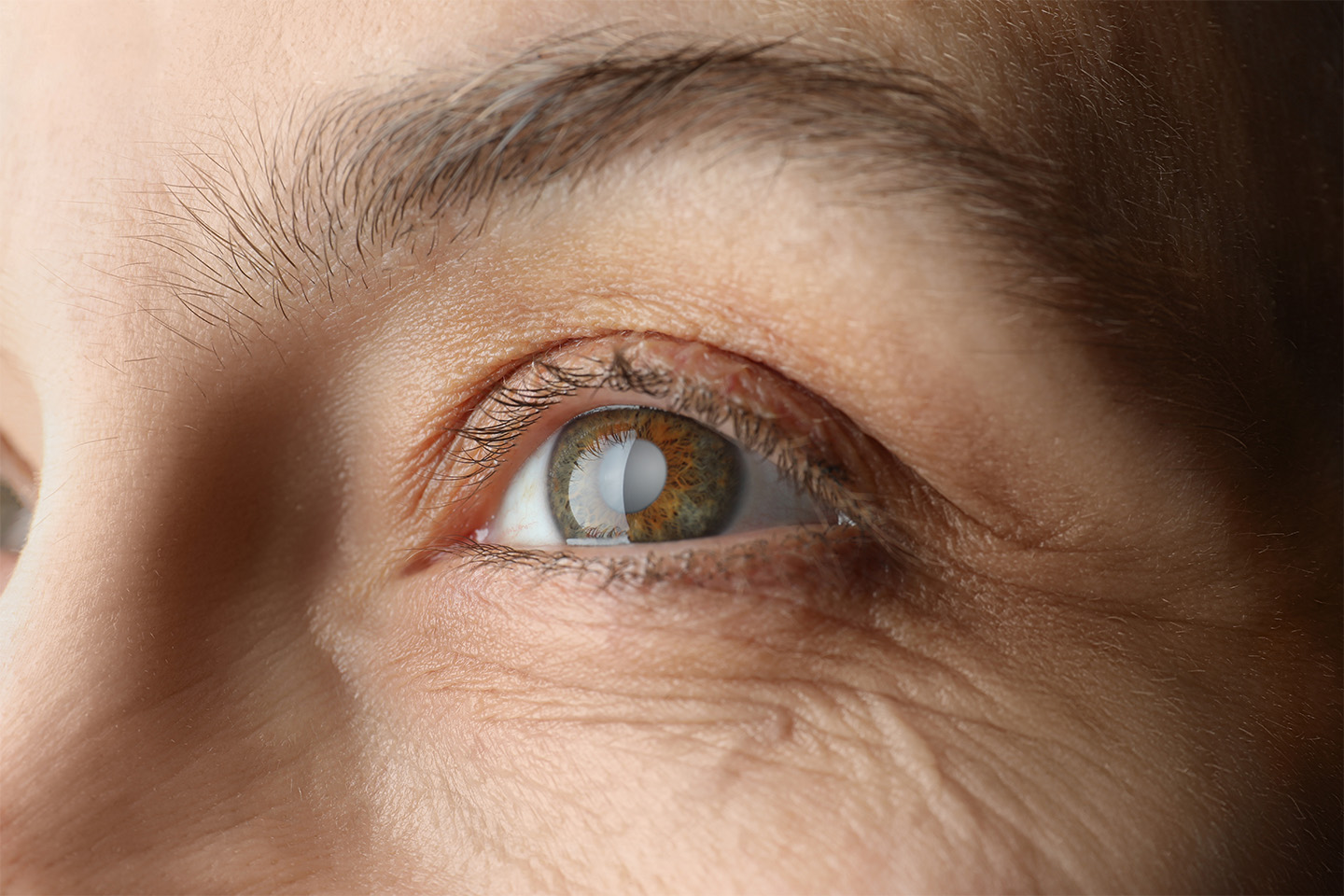Glaucoma: The Importance of Early Detection

Many people are becoming more aware of what’s in their food, beauty and household products and are taking a healthier approach to exercise and wellness. They may forget, however, to check for threats to their vision.
Getting regular eye exams is vital to your eye health and vision because an exam can detect typically symptomless eye diseases such as glaucoma. Glaucoma is a leading cause of blindness and can affect people of all ages. Approximately one out of every 10,000 babies born in the U.S. and nearly three million Americans overall have glaucoma, but only half of those people know they have it.
It’s important to have routine eye exams that check for glaucoma because it can often affect you without noticeable symptoms. A survey by the Glaucoma Research Foundation found that 50% of the people surveyed had heard of glaucoma, but weren’t sure of what it was, and an astonishing 30% had never heard of it. Education and early detection are the best ways to protect yourself from glaucoma.
What is Glaucoma?
Glaucoma refers to “a group of eye diseases causing optic nerve damage.” The culprit with glaucoma is intraocular eye pressure, which damages the delicate nerve fibers of the optic nerve. This results in blind spots, which are permanent. Left untreated, glaucoma will progress and can lead to total blindness.
What’s tragic about this disease is that many people don’t notice glaucoma-related vision problems until some permanent vision loss has already occurred. The key to preventing loss of vision from glaucoma is early detection and treatment by your ophthalmologist.
How Early Detection Works
If you are one of the 61% of Americans who have regular dilated eye exams, which is one of the most effective ways to detect glaucoma, you are on the right path to early detection. Regular eye exams by your ophthalmologist are the only way to determine if you are afflicted. The eye exam consists of a measurement of eye pressure, the drainage angle of your eye, an evaluation of your optic nerve and a test of the visual field of each eye. It’s a non-invasive exam preformed during regular yearly eye checkups.
Having a yearly eye exam is important because it can help your eye doctor detect changes in your eye that might hint at early-stage glaucoma. Glaucoma is relatively symptom-less and many patients who skip eye exams don’t realize they have this vision-robbing disease until the disease is advanced enough to create permanent blind spots. Glaucoma is best treated when detected early, when steps can be taken to reduce your intraocular eye pressure and prevent or stall vision damage.
Are You at Risk for Glaucoma?
Several factors contribute to a higher risk for glaucoma, including:
- Age — people over 60 are at greater risk
- African or Hispanic ancestry
- Thin corneas
- Family history of eye disease, particularly glaucoma
- Past eye injuries
- Smoking
- Steroid use
- Certain diseases, including diabetes and sleep apnea
If you fit any of these high risk categories, talk to your eye doctor about how best to regularly monitor for glaucoma and be hyper vigilant for any changes to your vision.
The Current State of Glaucoma Treatment
Glaucoma cannot be cured. However, there are several methods to manage and slow the disease’s progression. Eye drops, pills, laser procedures and operations are all treatment options available depending on the type of glaucoma and its stage. These treatments can be used in combination and changed over time to achieve a lower target eye pressure.
Medication
The advancement of medicine has led to the development of several effective eye drops that can be taken several times during the day in combination with pills. They decrease the eye’s fluid production or increase the flow leaving the drainage angle, effectively lowering the intraocular pressure causing the glaucoma. Medication is the most common way to treating glaucoma and often the first line of defense.
Laser surgery
If medication alone is not doing enough to lower eye pressure, a laser procedure may be recommended. A surgery called trabeculoplasty can enhance the way the eye drains to control eye pressure. There’s also iridotomy that improves the flow of eye fluid.
Operative surgery
An operation is only recommended by your ophthalmologist if he or she feels that the potential benefit (i.e. lower eye pressure) outweighs the risks. Using a microscope and specialized instruments, your doctor will create a new bypass drainage channel to allow fluid to leave the eye with an iStent.
What You Can Do to Detect and Treat Glaucoma
Share information about your overall health and that of your immediate family with your eye doctor. You should know your own eye diseases and any eye diseases that your family may have had, including macular degeneration and glaucoma. Make regular appointments with your ophthalmologist and keep them. The testing available today, such as dilated eye exams, are effective in seeing subtle changes to the optic nerve and are thus helpful in detecting the disease early.
ICON Eyecare’s team of fellowship-trained glaucoma specialists is here to serve you. We have a variety of treatment options, many of which are painless. We care about getting your glaucoma treated quickly so you can return to your life. Talk to your ICON Eyecare doctor today to discuss glaucoma detection and treatment options.
About ICON Eyecare
ICON Eyecare is a leading surgical and medical eye care provider based out of Denver, CO. Since 1999, ICON has been building a Center of Ophthalmology Excellence empowered by an expert team of board certified physician specialists, the most advanced laser technology and a culture of quality and extraordinary patient care. In coordination with referring optometrists and physicians, ICON Eyecare specializes in treating patients with cataracts, advanced forms of glaucoma and other age and disease related conditions, while providing innovative options for patients seeking LASIK and cosmetic eye procedures. With 14 patient care centers located in Colorado and Texas, ICON Eyecare is expanding within the broader western U.S. region. For more information, please call (720) 524-1001, or visit iconeyecare.com.
[DISPLAY_ULTIMATE_SOCIAL_ICONS]








